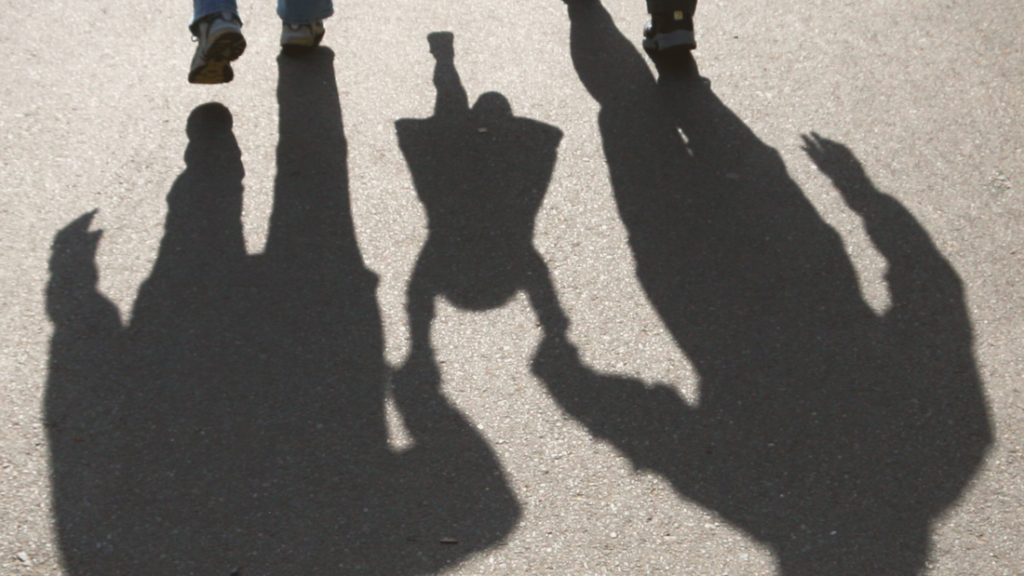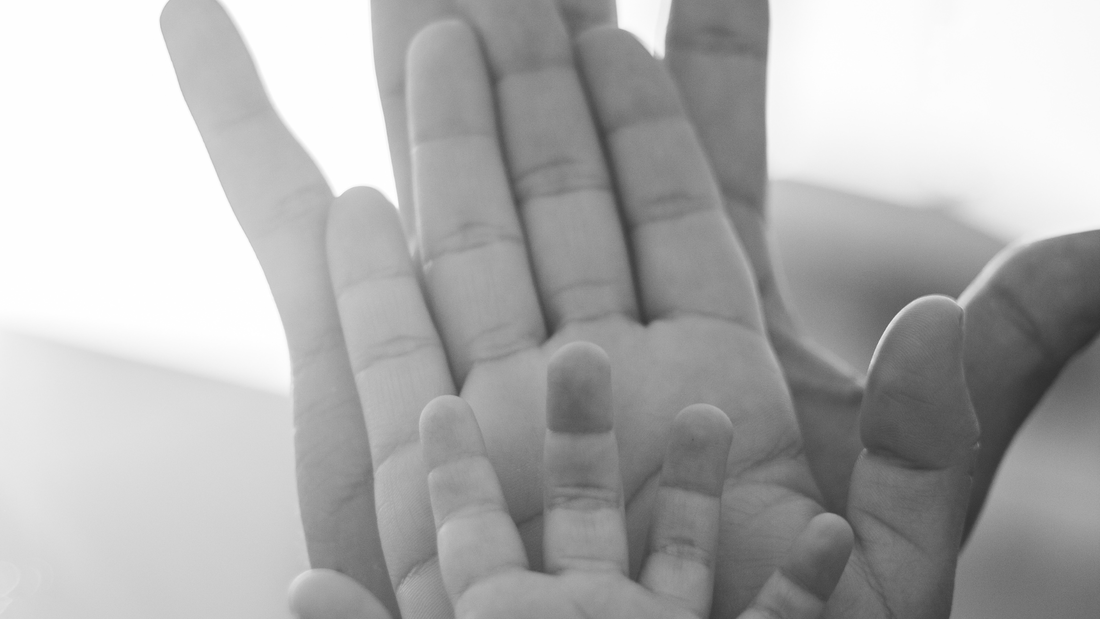By understanding my parents’ childhood and upbringing, I was able to let go of resentment, start shifting my perspective on my parents’ care and fully embrace their best efforts in raising me.
It took me some time to realize that they did the best they could with the resources and knowledge they had and their love for me was always present, even if it didn’t always come in the form I wanted or needed. I am forever grateful for that.
In this piece, I aim to explore the intricate and delicate dynamic that exists between parents and their children. Based on my own life experiences, I aspire to bring to light this fundamental relationship that shapes our existence in countless profound ways.
While some of you may disagree, I think parents are often doing their best to raise their children to the best of their abilities and to show them their own version of love. However, their approach is primarily based on their own family and cultural background, as well as the beliefs they developed during their formative years. This shapes their outlook on life and how they approach the future.
Have you ever encountered children who seem extremely angry with their parents? These are often the children who have experienced a profound sense of lack during their childhood. While some children may externalize their anger through protests or rebellious behaviour, others keep it bottled up inside, just like I did. Outwardly, I appeared calm and satisfied, but deep inside, I felt a raging anger as if something was missing in my life.
However, as a child I felt lucky because my parents provided me with all the material comforts. At that time, I did not analyze whether the way my parents raised me was right or wrong. All I knew was that I perceived them as two authorities who simply know what’s best for their child. Although I had everything I desired materially, emotionally, I felt a profound sense of lack without realizing it.
What I longed for was emotional support, a more authentic and unconditional expression of love that would accept me for who I am, regardless of my achievements, aspirations, or actions. Those simple yet powerful words that would reassure me: “I love you just the way you are.”
I would feel guilty if I ever felt anger towards my parents because I thought that I was one of those fortunate children who always had everything and had no right to complain. As a result, I never expressed my emotions outwardly.
Of all the relationships we form in life, the one between parent and child is arguably the most important, shaping all of our future connections with others.
Sadly, in today’s world it’s all too common to hear of parents and children who no longer speak or have a strained relationship.
Many parents raise their children believing they know best, assuming that their life experience automatically makes them the authority on what is right and wrong. But they fail to recognize that their own upbringing and beliefs may not necessarily align with the world their children are growing up in.
On the other side of the coin, there are many adult children who harbor deep-seated anger and resentment towards their parents for not understanding or meeting their needs as children. But we don’t see that our parents were also shaped by their own family and cultural background, and their own beliefs and perceptions of the world.
In today’s world, there are thousands of adults seeking to heal from their childhood issues, and I am one of them. However, while I initially saw this as healing from the wounds that were caused by my parents, I now know that healing from childhood issues means letting go of my ego and the limiting belief that my parents created these issues to me.
Not really.
After going through a personal journey, I now believe that parents always do their best to raise their children in any situation. When one hears this, they might imagine, “How can they do their best when they abandoned me when I was young, hurt me so much, underestimated me, destroyed my self-esteem, and didn’t show me love?” But in reality, a parent always does their best based on the context in which they grew up, the beliefs they formed in their early years, the social and cultural period in which they were born, and of course, the experiences they have lived.
So that “best” is influenced by the environment that shaped them. Every parent expresses their own version of love, some of them which may not be perceived as positive by today’s society.

I think it’s important to shift a perception of the connection that is formed between a parent and a child, often happening unconsciously.
If a parent continues to believe that their greater life experience means they know exactly what’s right and wrong for their children, and if some children continue to believe that their parents don’t really understand their needs, then in my view, generations will not move forward.
For example, in the context in which my parents grew up, it was valued to listen to authority, achieve good results and performance, have a good education, and rebellion was punished. “I love you” was not often said, compliments were not given often, and physical hugs were not given just like that. Love was expressed in different ways than how I perceive it today.
Moreover, they grew up in a historical period where certain material needs were lacking. It’s natural that achieving greater material abundance in the following years was perceived as a success. Therefore, their upbringing was influenced not only by the family environment, but also by the historical and cultural context in which they grew up, which can be significantly different from the current one.
Love at that time was measured based on actions. For example, a man might show love by ensuring the family was provided for materially, while a woman might show love through taking care of the household cooking and food preparation, etc.I think it’s important to have a mutual understanding of the connection that is formed between a parent and a child, often happening unconsciously. If a parent continues to believe that their greater life experience means they know exactly what’s right and wrong for their children, and if some children continue to believe that their parents don’t really understand their needs, then in my view, generations will not move forward.
When I was younger, I couldn’t understand that my parents had grown up in a different context than mine, one that I couldn’t even imagine. I just took it for granted that sometimes they had hurt me and that they were wrong in their parenting. It wasn’t until later in life that I came to understand that my parents were raised in an environment where emotional support wasn’t emphasized. But in reality, they did their best to express and pass down to me their own version of love, one that they had grown up with.
I used to believe that it was all the parents’ fault. They were responsible for my low self-esteem. They were the ones who should have raised me better. But over time, I realized that in the parent-child relationship, there is no one who is always right and one who is wrong. At first, it is the parent who teaches their children life lessons, but later it becomes the children themselves who teach their own lessons.
That’s why I think it’s very important to listen to the stories parents tell about their past, the environment, and the context in which they grew up, and try to understand what they are bringing from their childhood and what lesson I, as their child, can teach them in this life.
I believe that the birth of a child to a certain parent is not random. It’s a choice made by both the parent and the child to have exactly those parents.
Later in life, I realized that the parent-child relationship is a two-way street. Both parties have something to learn from each other, and both can contribute to each other’s growth and healing.
Looking back now, I can see the clear path that my parents created for me. Their beliefs, behaviors, and way of thinking that they passed on to me gradually led me to share my own version of expressing love. In my case, it’s the kind of love where I’m not afraid to show that I love my parents unconditionally with all their shades.
It’s a form of love that they may not have experienced in their own childhood. And maybe, as their daughter, I’m here to transmit them and future generations different ways of expressing love where they don’t have to do anything to deserve it from me, but simply because they exist, they are worthy of it.
After all, they gave me life, and that is the most precious gift a parent can give to a child.
I believe that if both sides — parents and children — can realize their mutual connection and accept that each one came here to learn something from the other, whole generations will gradually start healing, liberating themselves from limiting beliefs and new paths will open up for a more meaningful and harmonious life.
